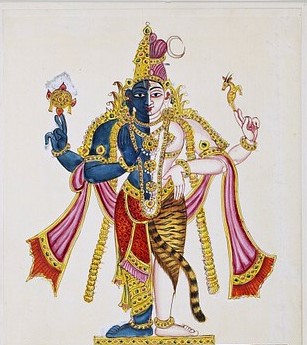Writer of that Particular hymn (Nasadiya Sukta) is supposed to have been Prajapati Parameshthi. We have various indexes on Vedas where among many other things, name of the writers and their lineage is mentioned (Anukramanis, although other than tradition, there is no proof of that). I think he considered the question of origination and rejected existence of Gods and let the question remain to be answered in future - just as I am doing it today some 3000 years later. I do not believe in eternity of the universe, that does not answer as to where it originated. Therefore, there must have been a time when the universe must not have existed. So, probably there is a 'non-existent phase' of 'what exists'. Perhaps that is what Prajapati Parameshthi meant when he intoned:
"Sages who searched with their heart's thought discovered the existent's kinship in the non-existent."
Prajapati - Wikipedia.
Interesting that he carries the title that had been associated with Creation and Creative Activities or Origination and Founding activities in some sense!
My concern isn't in "what originated" so much as that there is an apparent "Force driving the appearance of animation and/or the appearance of Change and generation of exclusive experience", and so I call that Force "God" and consider it the encompasser of all intelligence, with its own intelligence in a sense that is responsible for all and each instance of apparent "change" or "motion". The difference is then not even what one calls whatever is doing that which is undeniably apparent, but if it is intelligent in any sense and responsive or reactive in any sense, and so there are those who say:
Yes it is intelligent, also it is responsive.
Yes it is intelligent, but not responsive.
No it is not intelligent, but it is responsive.
No it is not intelligent, and it is not responsive.
These are the 4 main types of understandings, which don't even deal with origination, but rather with what is present and can be said to be responsible for the "apparent change, apparent motion, apparent force" of this or that occurring or our generated moments of experience exclusive to us and what seems to appear in those moments.
I am of the school of thought that the "Apparent Change/Force/Motion/Animation" that we see before us, driven before us, is backed by intelligence and is responsive. This puts me in the category of most of humanity throughout the past, and even a lot (if not most in at least some way), of those today. There is no mannish creature involved in this, even though many people might literally believe in such.
A great many people now also believe in the other varieties I mentioned.
You may be of one of the two latter schools on the list there, which may say that "whatever at all is responsible for the appearance of change, motion, force, occurrence, animation, generation of experience, and whatever else" is possessing no form or semblance or type of anything that could really be called "intelligence" or "consciousness" despite our own intelligence and consciousness (so then is separate from us which exists within it and due to it, but it is without thought and we are with thought, apart from it in that sense). You then may either believe it is responsive to stimulus or interaction attempts in some way (even if its abiding by some sort of inexplicably automatic system that just happens to be unintelligently present), or that it is also not responsive at all, so that nothing one can do in any way might actually seem to influence it or receive any sort of reaction or response. So that would make it "double dumb" in a sense, neither intelligent, nor even responsive.
So the options are:
Intelligent-Responsive
Intelligent-Unresponsive
Unintelligent-Responsive
Unintelligent-Unresponsive
There is no denying that there is "apparent change" and that "something" by definition is moving all this apparent change, and by that I don't mean any figure like a man in outer space, but that the fact that it is moving shows there is a force at work. No one in their right mind, once they understand what is being discussed, denies that there is the appearance of change and clearly apparent motion and a force at work.
The only distinguishing factor becomes the intelligence in some sense and responsiveness or ability to interact in some sense.
One may think that "intelligence" would be necessary for "responsiveness" but this is not the case if one presents a model where a thing considered "unintelligent" like "water" shows "responsiveness" to various forms of interaction for example.

